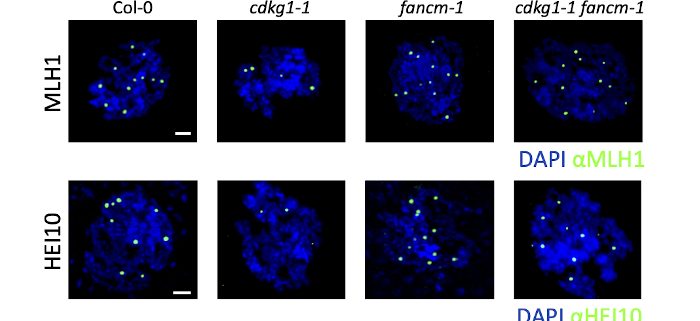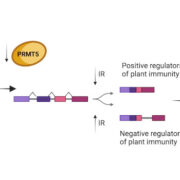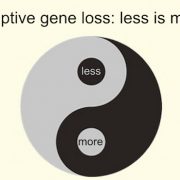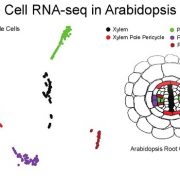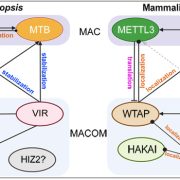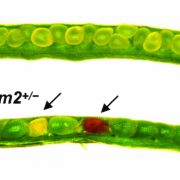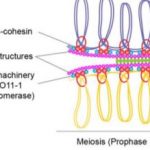CDGK1 maintains class I meiotic recombination precursors
Nibau et al. explore the role of a cyclin-dependent kinase in meiosis.
Plant Cell https://doi.org/10.1105/tpc.19.00942
By Candida Nibau, Andrew Lloyd, Dylan Phillips and John Doonan
IBERS, Aberystwyth University, UK
Background: Cyclin-dependent kinases are involved in many cellular processes ranging from external signal perception, division and death. Our work has shown that CDKG1 is necessary for the correct progression of meiosis, a specialised form of cell division that results in gamete production. During meiosis, both sets of parental chromosomes find each other, pair and reciprocally exchange DNA in a process called recombination, before correctly segregating into the daughter cells. In plants lacking CDKG1, the first steps of the recombination process progress normally but the parental chromosomes fail to fully pair and reduced numbers of mature recombination molecules are observed. This results in incorrect chromosome segregation, unbalanced gametes and sterility.
Question: In this study we delve deeper into the meiotic role of the CDKG1 kinase and reveal how it interacts with other known meiotic functions to achieve an orderly reduction division.
Findings: In Arabidopsis, most meiotic recombination (~85%) occurs via the major class I pathway, with a smaller contribution (~15%) by the minor class II pathway(s). We demonstrate that CDKG1 is necessary for regular processing of recombination precursors by the class I pathway. In the absence of CDKG1, fewer early precursors of class I recombination persist and there is an increase in recombination events occurring via the class II pathway. Using a genetic approach, we further increased levels of class II recombination, which restored chromosome pairing, synapsis and class I recombination in the cdkg1 mutant. We suggest that CDKG1 acts early in the meiotic DNA repair process to stabilise recombination precursors so they can be effectively processed by the class I recombination machinery. In addition, we show that CDKG1 is also involved in somatic DNA repair.
Next steps: We now want to investigate the mechanism by which the CDKG1 kinase stabilises recombination precursors. Does it physically associate with recombination sites? Does it phosphorylate other meiotic proteins? Or, does it act by regulating the abundance of meiotic proteins through post-transcriptional or post-translational regulatory mechanisms?
Candida Nibau, Andrew Lloyd, Despoina Dadarou, Alexander Betekhtin, Foteini Tsilimigka, Dylan W. Phillips, and John H. Doonan. (2020). CDKG1 Is Required for Meiotic and Somatic Recombination Intermediate Processing in Arabidopsis. Plant Cell; DOI: https://doi.org/10.1105/tpc.19.00942


